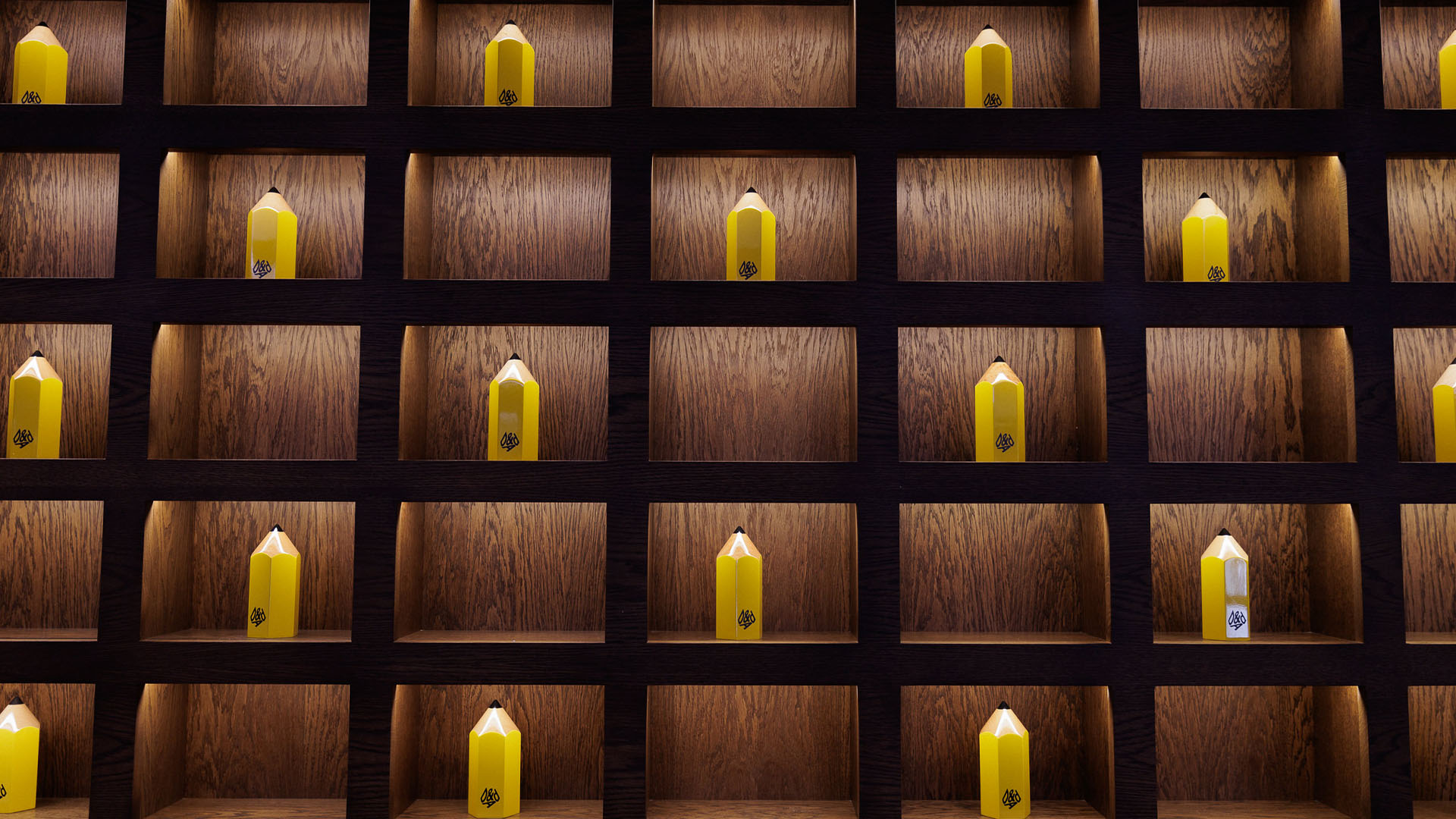How to add energy to your life drawings
Explore the anatomy of style and discover how to bring a story to a pose.
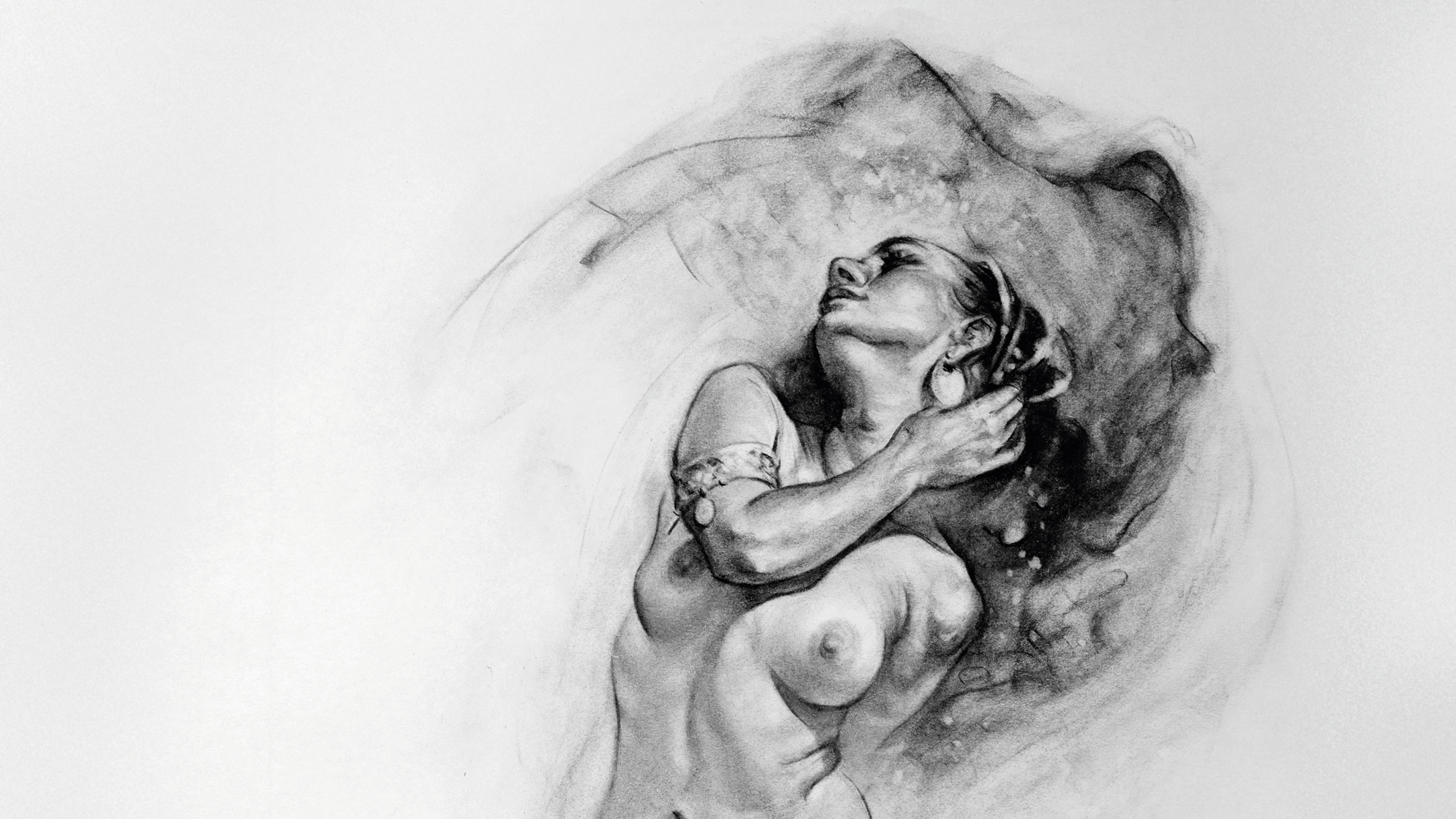
In this tutorial I'll be drawing model Katy to show you how I use the artistic disciplines of love, devotion and surrender to add energy to my life drawings.
As a young artist I was driven by my love of art. I believed love and devotion were the only disciplines needed to scale each new wall and reach each new plateau, but one day, many years into my career, I realised my taste in art had changed.
I faced a colossal wall carved with the words: "Why are you unhappy?" "I want to draw with more style and freedom," I replied. "What's stopping you?" the wall asked me. "I'm a photo-realist, my work makes people gasp with admiration," I said. "If I change now then I won’t be so impressive." "Then surrender your ego," the wall demanded.
And in my silent surrender a giant wall toppled and I ascended to a new plateau. Later I wrote three words that would anchor me in future moments of doubt – love, devotion and surrender – and writing them down changed everything.
Good fortune had gifted me the first two disciplines of love and devotion, yet the act of surrender proved difficult. In my quest for artistic freedom I was all over the place, painting and drawing, obsessed with high ambitions, but l left little time to practise each new skill.
With this headless chicken approach my art seemed to get worse. I needed to slow down. I surrendered to the fact that true progression takes time and was able to hone my skills until I reached each new plateau. I learned once more that surrender could be a discipline.
For even more drawing advice, check out our guide to how to draw a figure, or how to draw muscles. Or for drawing tips on all manner of subjects, see our how to draw roundup.
Get the Creative Bloq Newsletter
Daily design news, reviews, how-tos and more, as picked by the editors.
01. Refine the pose
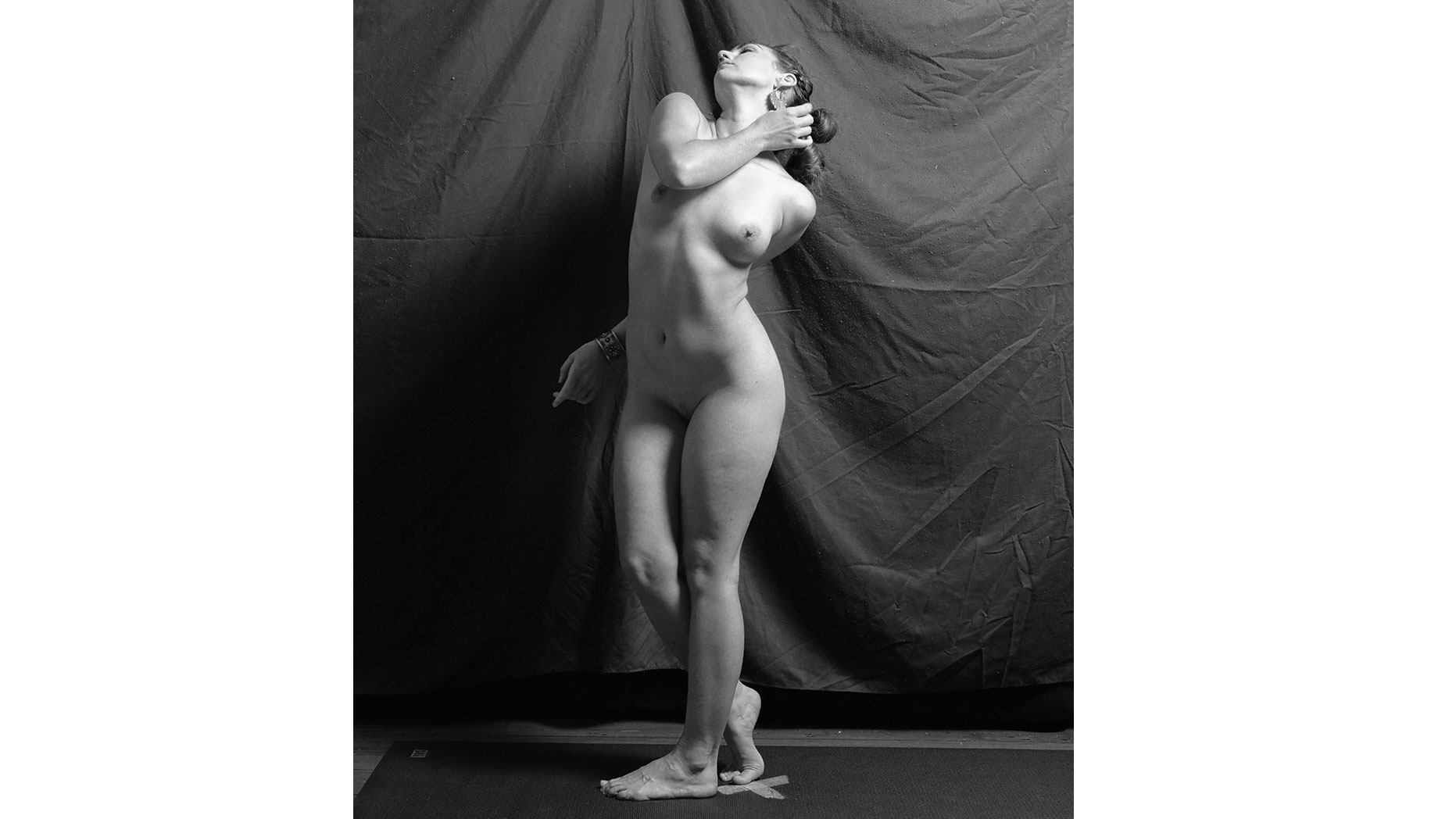
Let’s study the problems with this photo. First, Katy’s left hand looks odd and kills the rhythmic flow. Second, the stretch side of the body is almost a straight line. These are just the obvious problems so I need stay on high alert as I draw.
02. Surrender to the rhythm

I start with the rhythmic flow of the figure, back and forth from one side to the other. I used to measure proportions with great importance, but ended up with dull drawings.
Once I surrendered to rhythm more for my proportional guide my drawings were no longer so 'correct', but they were more interesting, gestural and filled with life.
03. Use overlaps and undulations
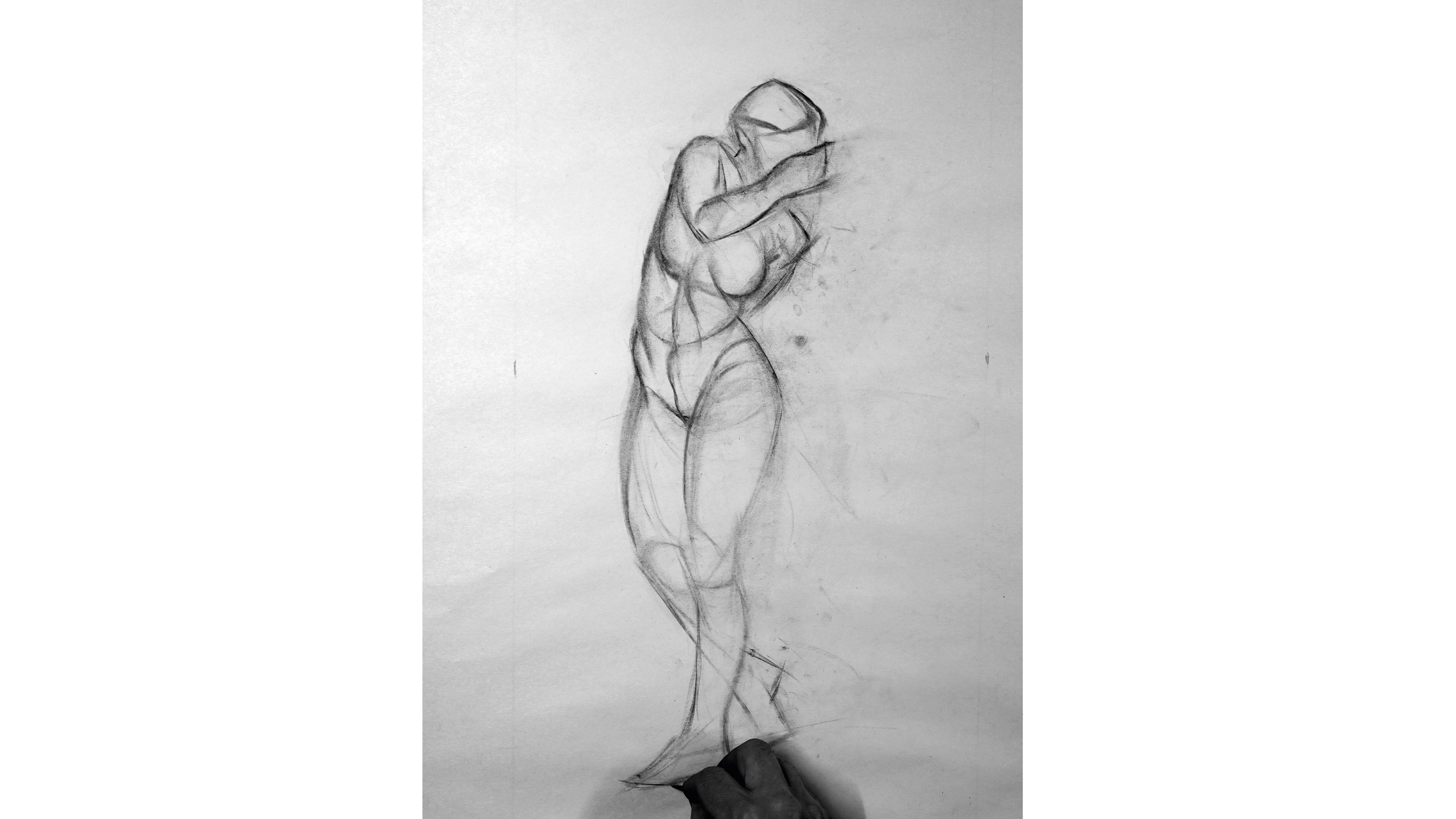
Here I've interpreted the reference toward the dynamic. The stretch side has more gesture, overlaps and undulations. I've also dropped Katy's left arm for the deleted hand to appear as if it's behind her back. Many studious hours committed to the love and devotion of craft has made this balance of gesture and structure possible.
04. Play the accordion
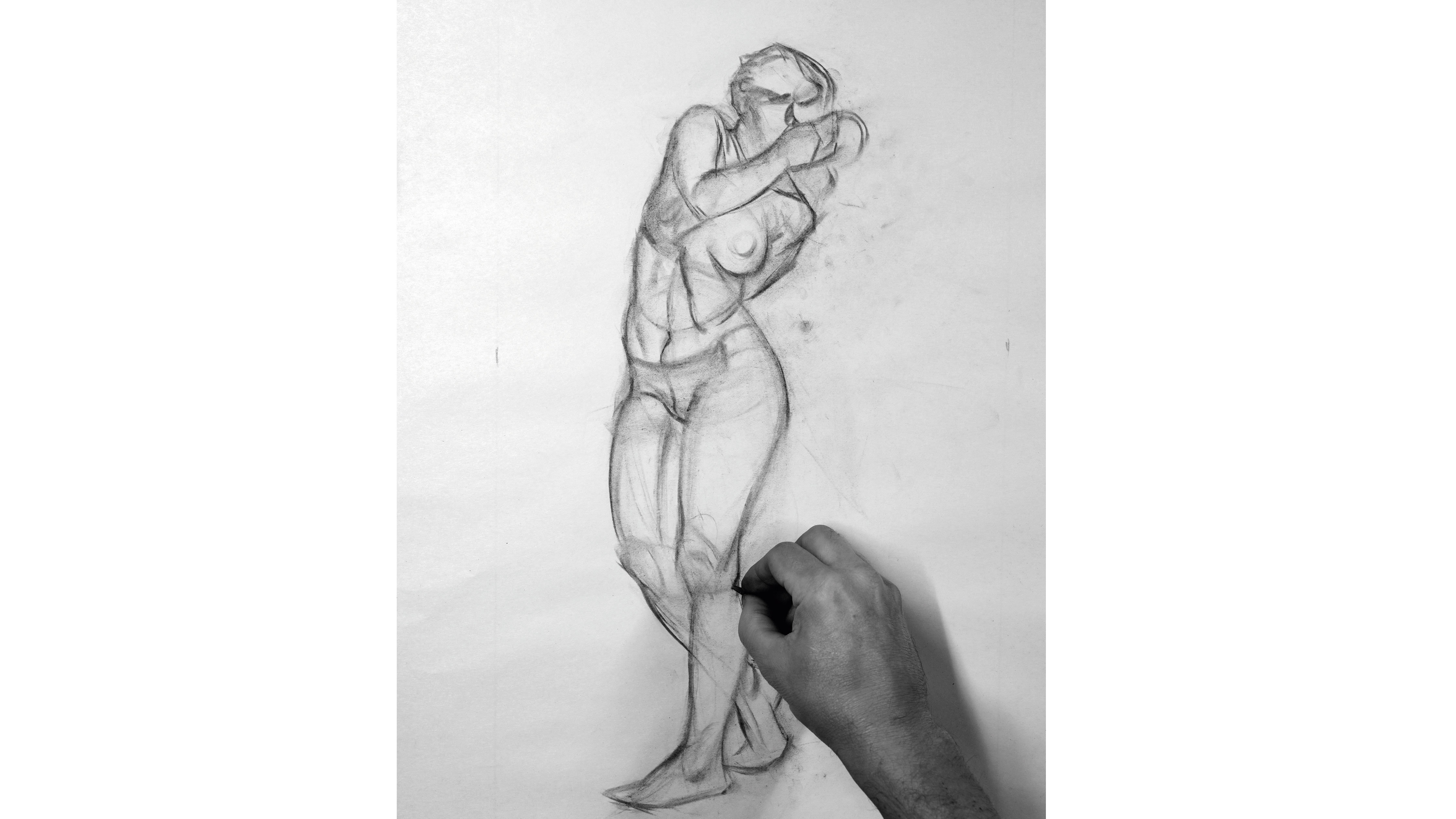
With the extra bend of the torso I make sure the pinch side is counterpoised with wider distances on the stretch side, like an accordion. Follow the faint lines under the breasts, across the navel and the hips to see what I mean. At this stage I title the drawing The Storm Bringer, which sets the mood to come.
05. Regain lost depth
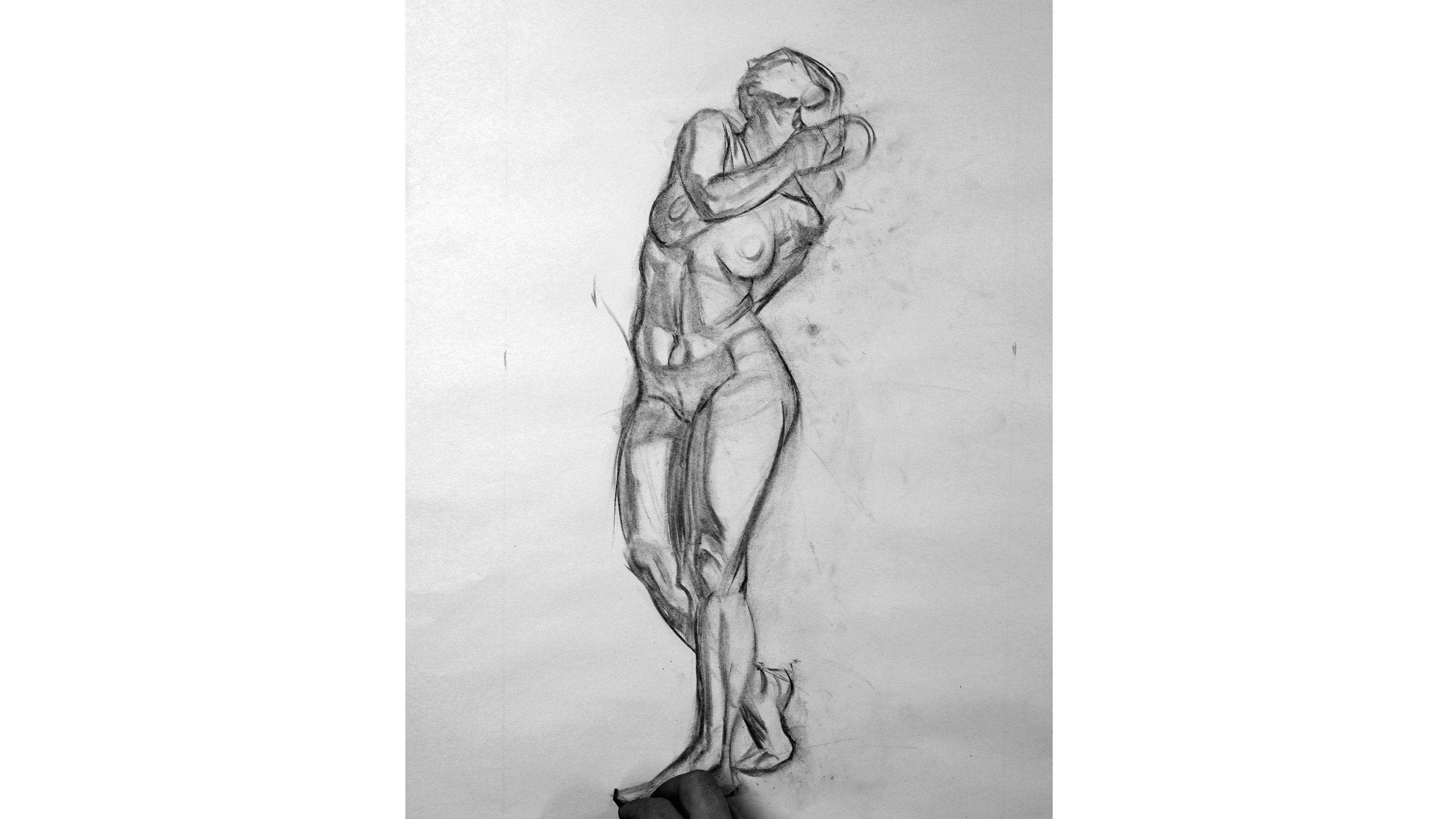
I block in the core shadows. The stretch side of the photo-reference was visually flat because of tangent lines (converging lines that destroy the illusion of depth).
If your photo-reference lacks depth, think of ways that will enable you to create overlapping forms. Here I overlap Katy's ribcage with her right breast and push the hip and tenth rib forward to regain the lost depth.
06. Generate a natural rhythm
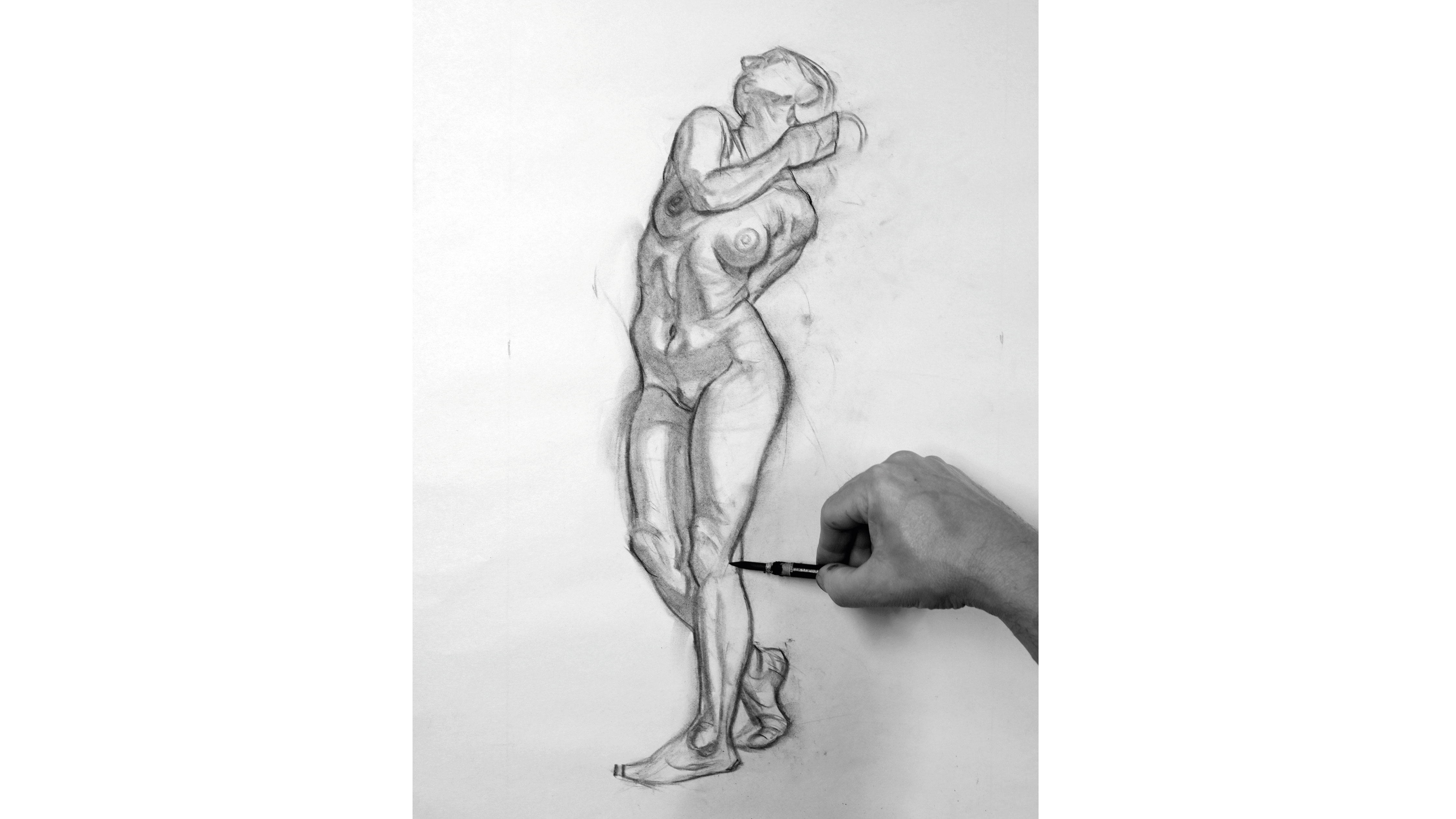
My figure is shorter in proportion, but the natural rhythm I’ve gained is more important. If I were to go in now and make the legs longer it would kill the organic rhythm and the drawing would become horribly stiff. I feel that surrendering to the rhythm was the right choice and I lay-in gestural lines on top of the structures.
07. Add details and correct errors
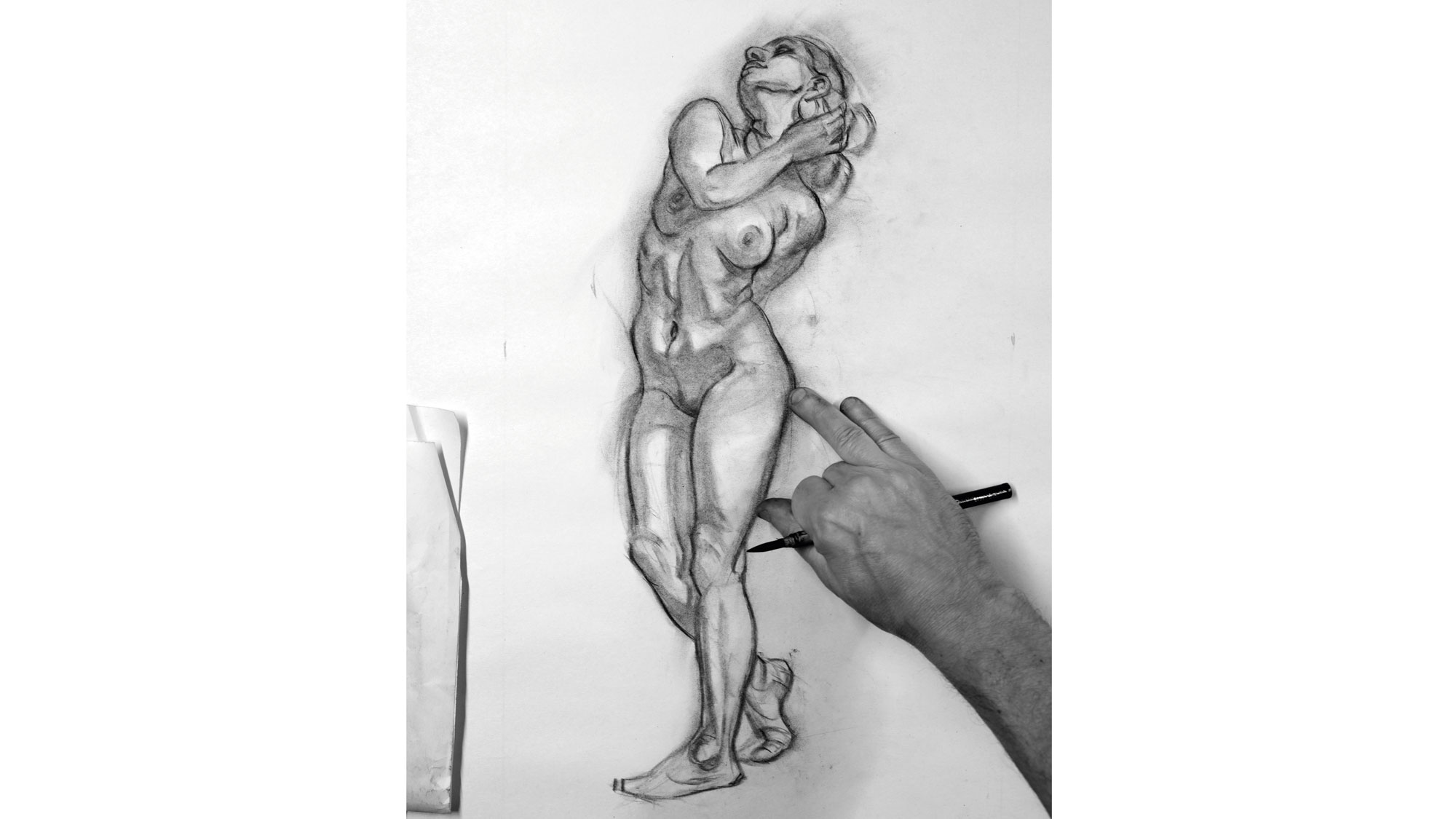
I bring out Katy's right shoulder and tricep and overlap the ribcage across the obliques. As I smudge tone I'm aware that the head has grown bigger and note to myself to trim it down. I also observe that the cast shadow of Katy's left leg has created a bow-legged look to her right leg.
08. Trust your gut
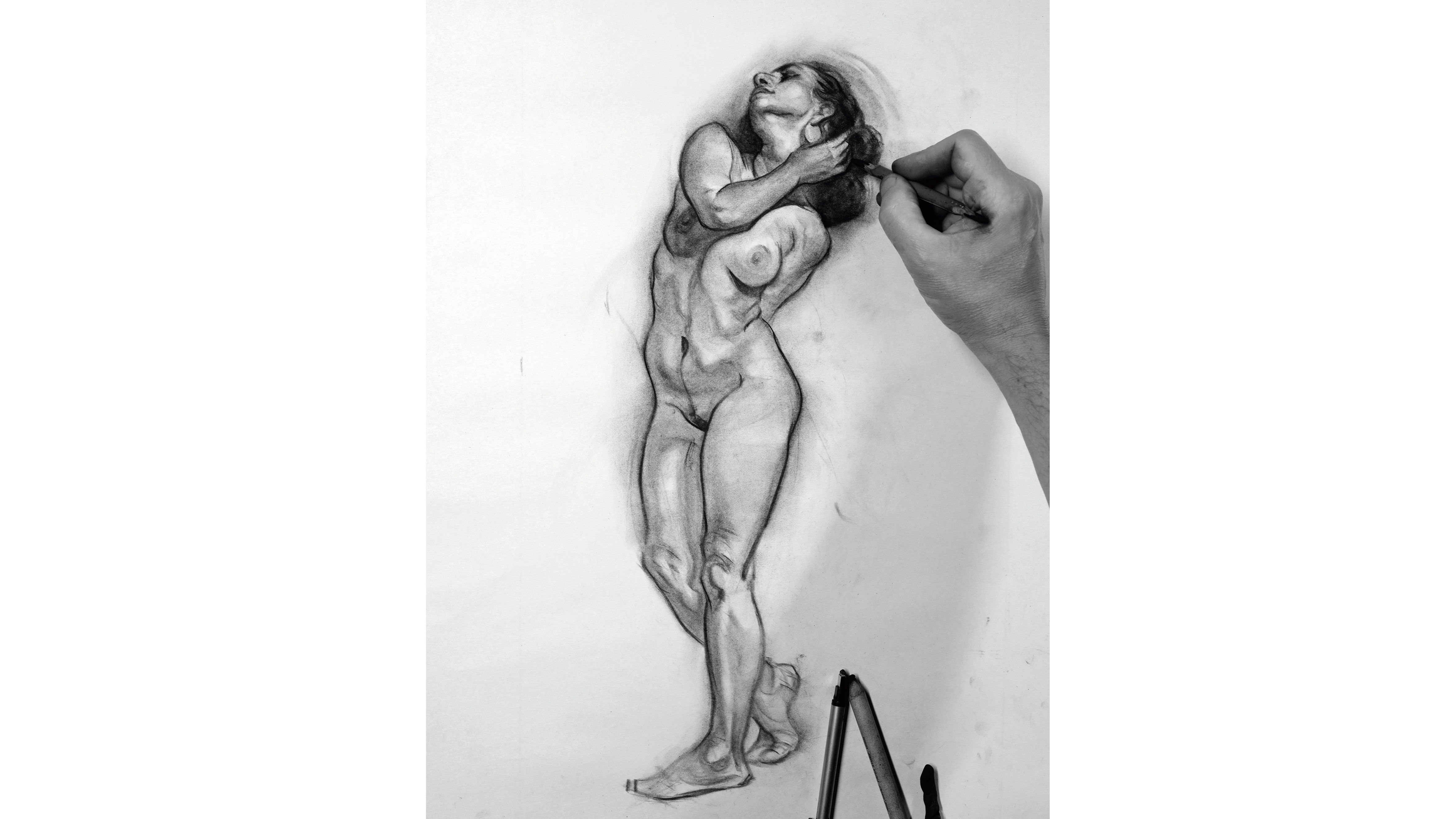
I step back for a minute and decide that the cast shadow of the arm should drop over the ribcage instead of half-way across the breast. It's now more clearly described and has more gestural appeal. In class I tell my students that if it looks right, it's right, even if it's wrong! This conundrum is always guaranteed to raise eyebrows.
09. Think ahead
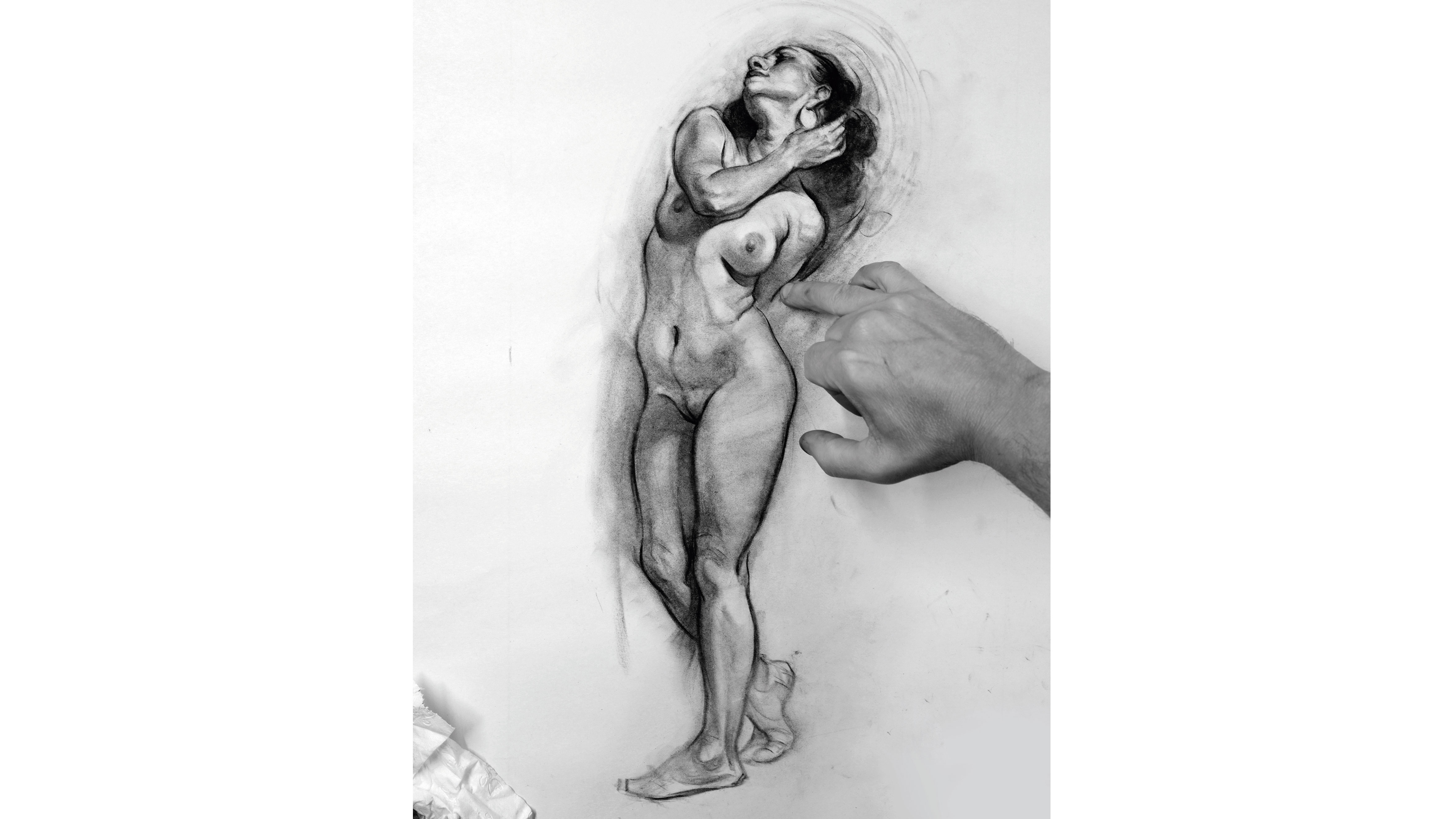
I work on the edges, softening core shadows and fading Katy's left arm into a sfumato mist (a technique for blurring colours). I slant Katy’s head to make it more dynamic and smaller. The head needs to be smaller still and I think on it as I highlight the upper torso. Thinking ahead as I work adds energy and purpose to my hand.
10. Change your tools
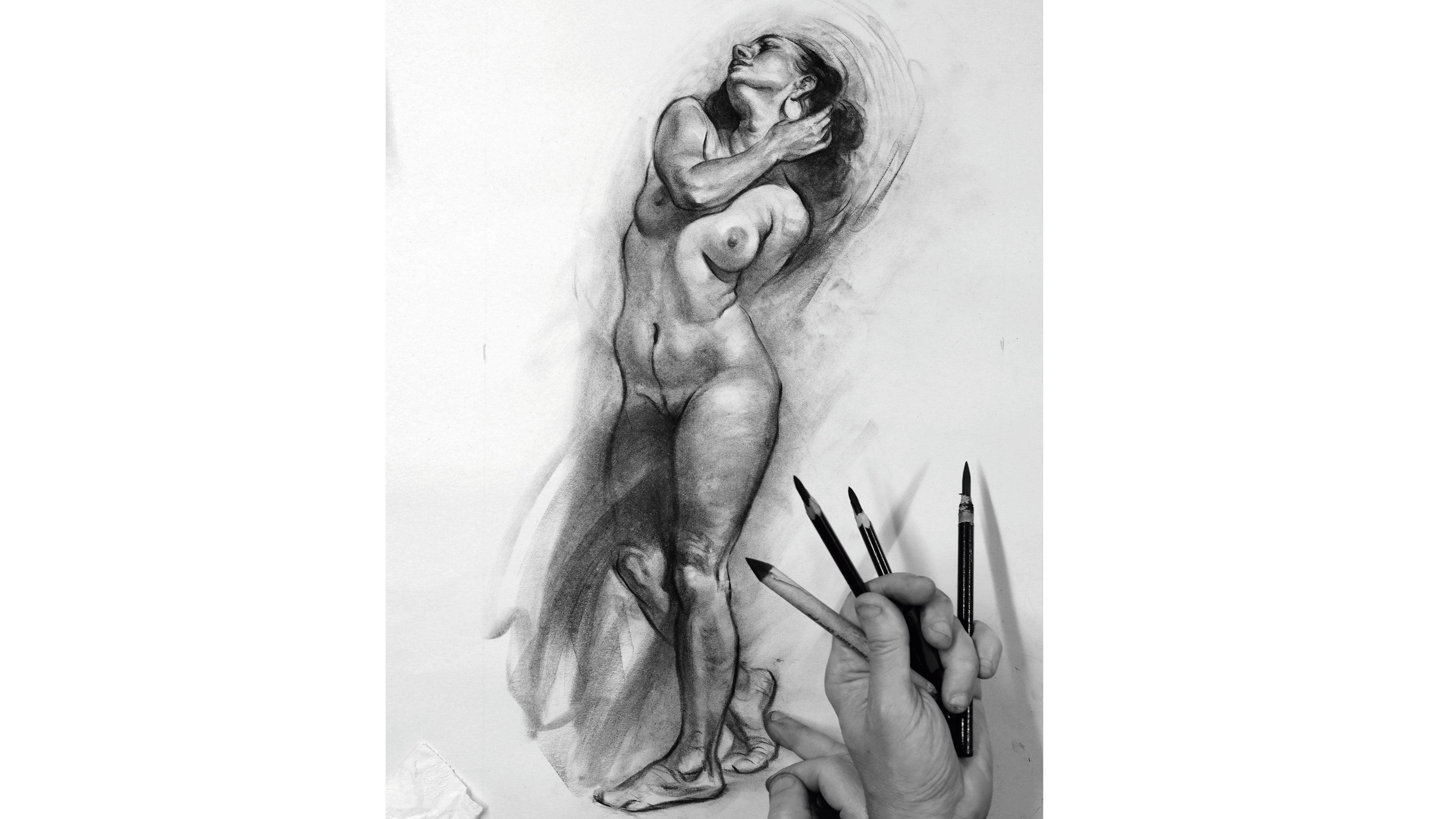
By varying my drawing tools I'm able to reduce the head and fade the right leg into shadow, which kills the bow-legged look. With this new shadow shape I'm considering both story and style, and plan to run a line of action through the body in the shape of a metaphorical storm.
If you're struggling with your figure pose, squint your eyes until you see a basic shape. This will reveal the main action of the pose.
11. Add subliminal rhythm
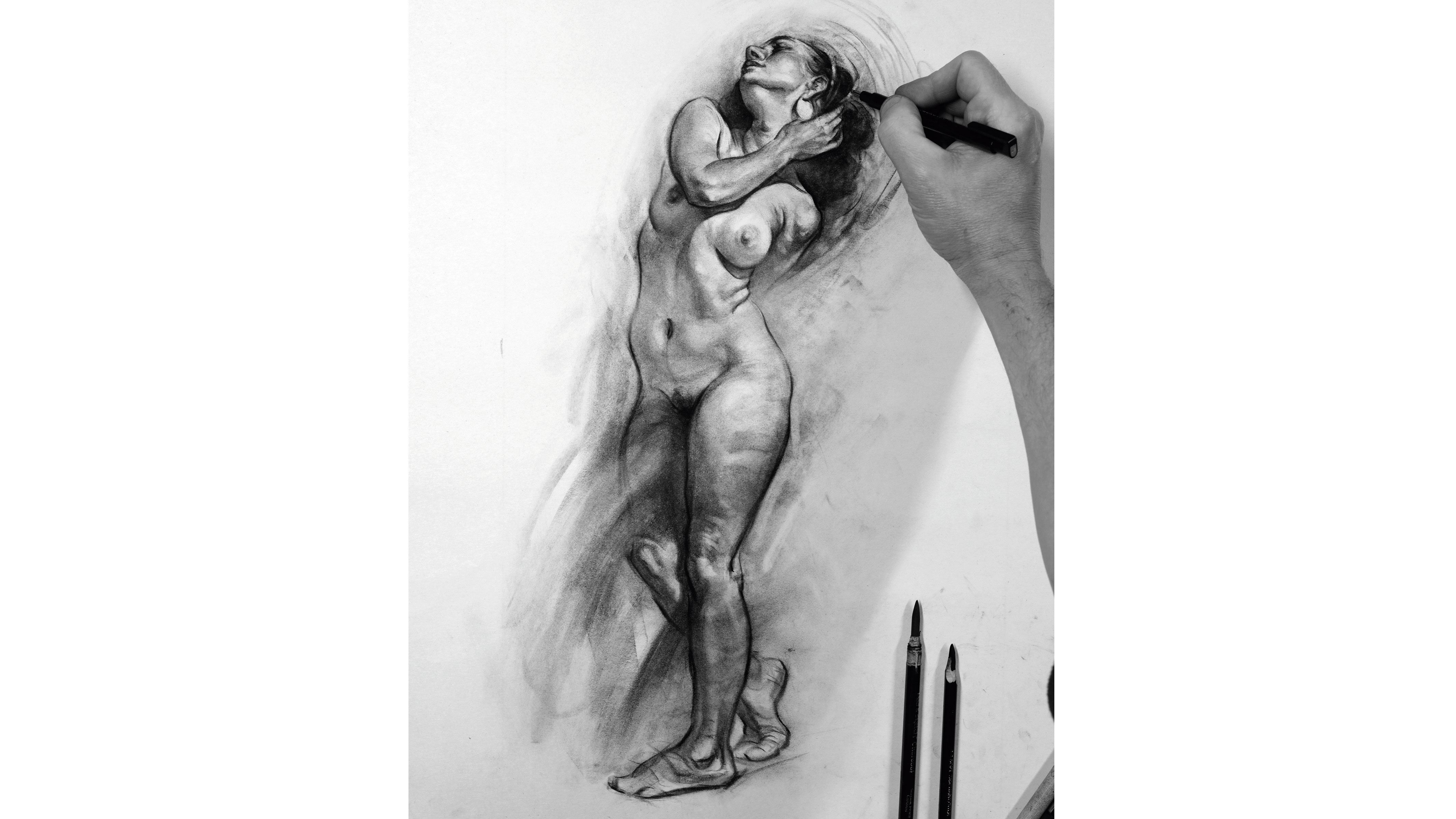
Katy's hand may seem big here next to her foreshortened forearm, but I believe hands and feet look better bigger rather than smaller. If I were to make it smaller it would feel like an insecure decision. Here I add subliminal rhythm with gold head bands that echo the shape of the skull. The mono eraser is great for this.
12. Generate maximum fluidity
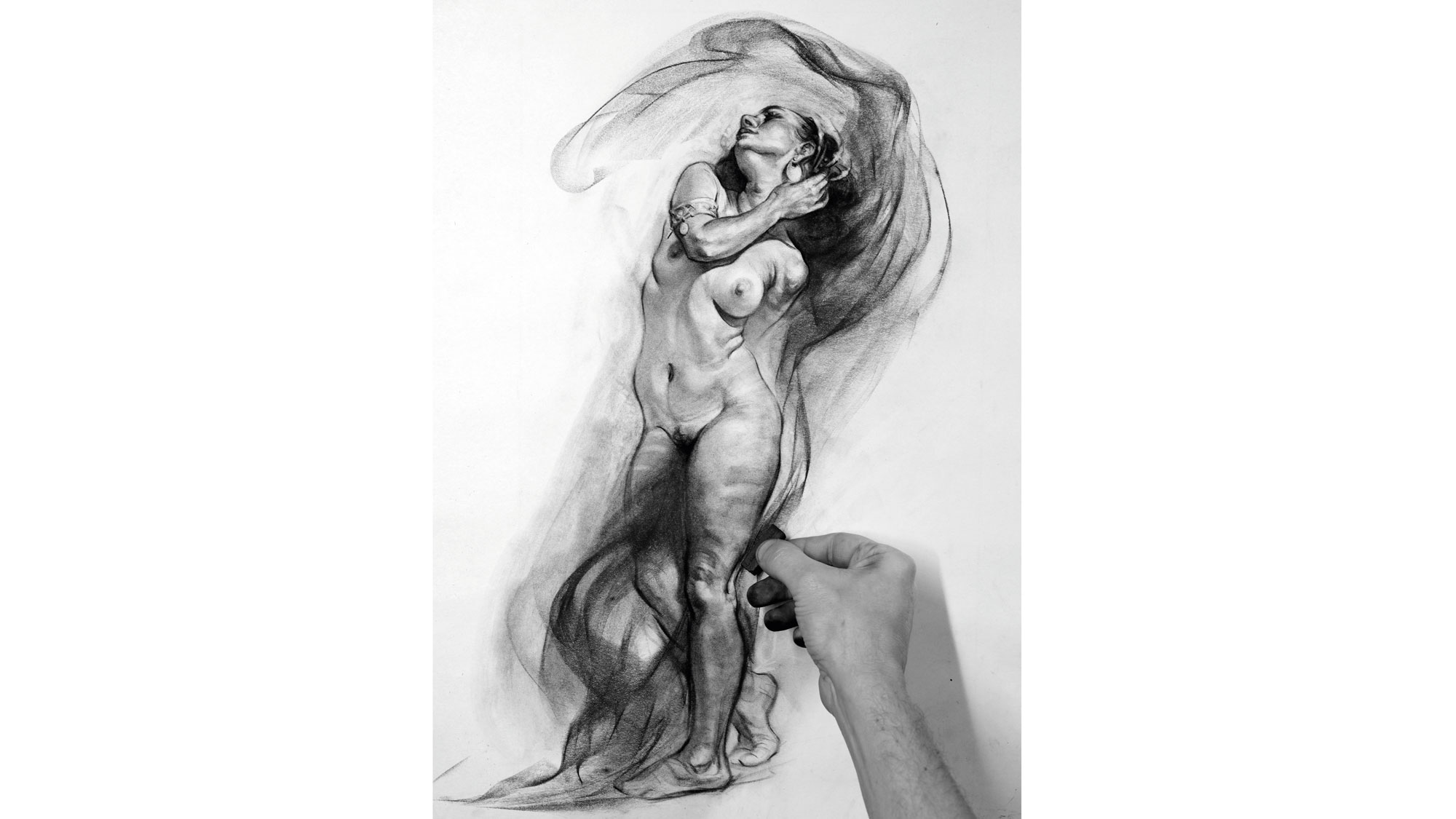
Time for the metaphorical storm. With a block of compressed charcoal I engage the gestural hand with fluidity set at maximum. Compressed charcoal is dark and may hinder your confidence with its stark nature.
To draw with assurance, try practising on some scrap newsprint before drawing on your art. I recommend laying down light strokes building to dark strokes.
13. Remember your disciplines
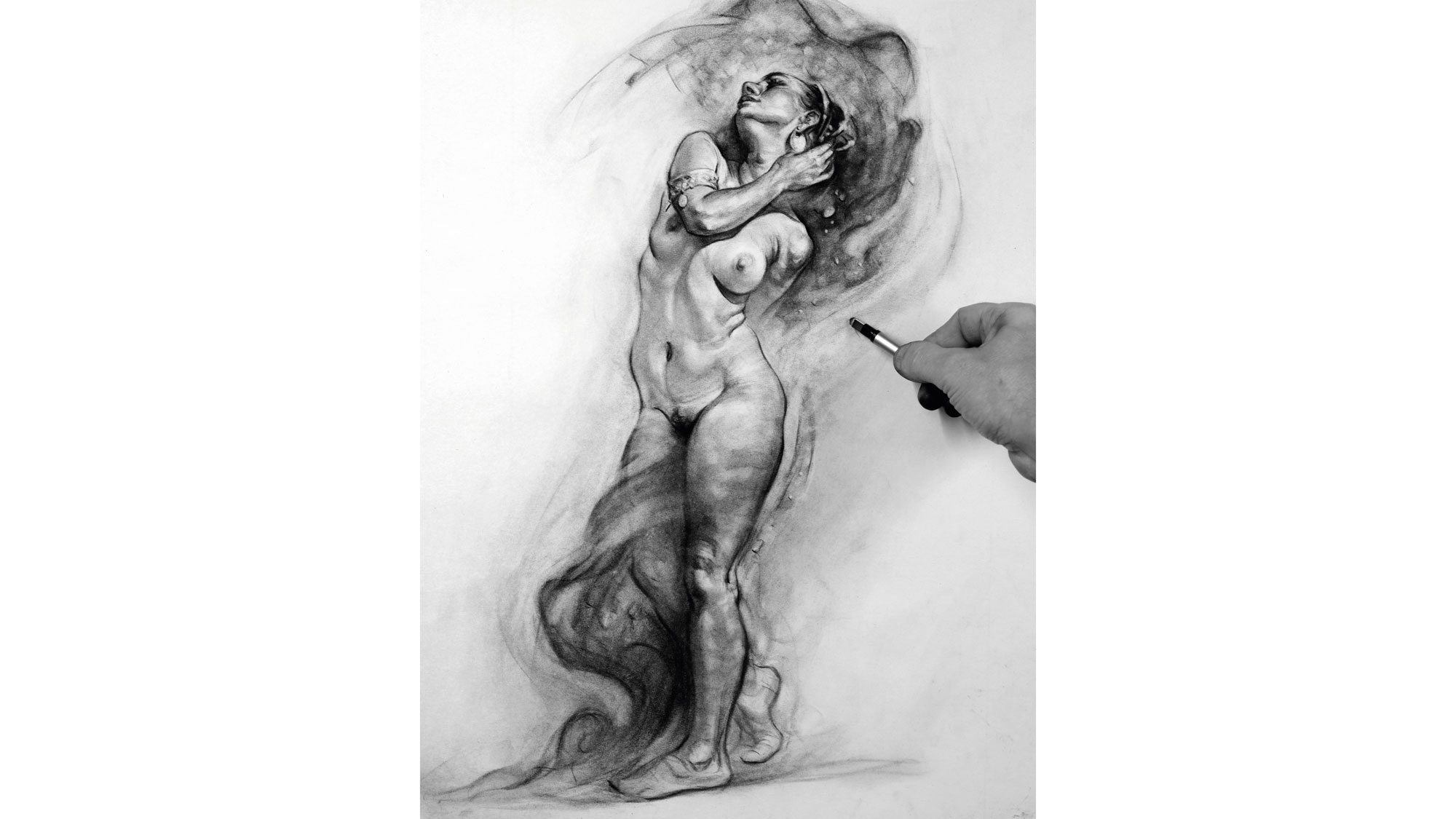
Reshaping the gestural lines to represent a storm has killed some gestural flow. There are trade-offs as we draw; however, keeping our disciplines in place while also taking chances enables us to learn something new.
Next time I use this rhythmic charcoal technique I'll surrender more to the natural rhythm and not fight it as much.
14. Call it a day
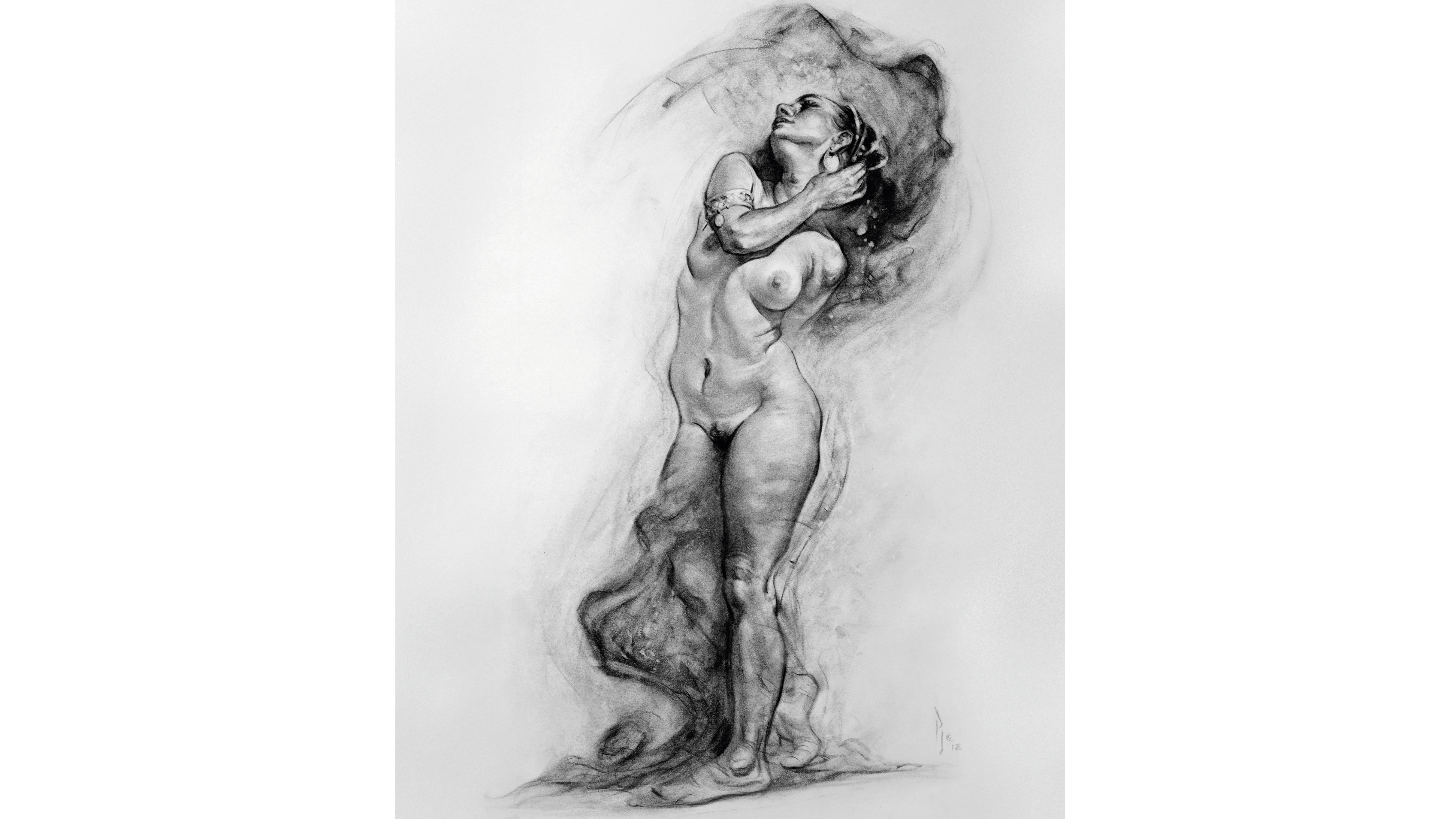
We're a world away from the reference photo now and the micro changes to structure and gesture have created a style that's uniquely mine, and if you have drawn along you'll have a drawing that's uniquely yours.
Embracing the disciplines of love, devotion and surrender won't limit our art unlike strict rules. Instead, they embolden us with a freedom of expression.
This article was originally published ImagineFX, the world's best-selling magazine for digital artists. Subscribe here.
Related articles:

Thank you for reading 5 articles this month* Join now for unlimited access
Enjoy your first month for just £1 / $1 / €1
*Read 5 free articles per month without a subscription

Join now for unlimited access
Try first month for just £1 / $1 / €1
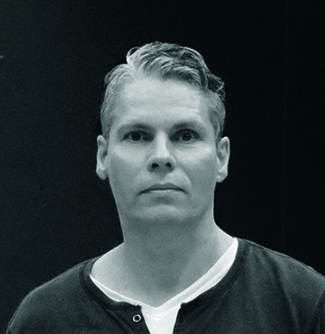
Patrick J Jones is an artist, teacher and the author of Sci-fi & Fantasy Oil Painting Techniques, The Anatomy of Style and The Sci-fi & Fantasy Art of Patrick J Jones.
